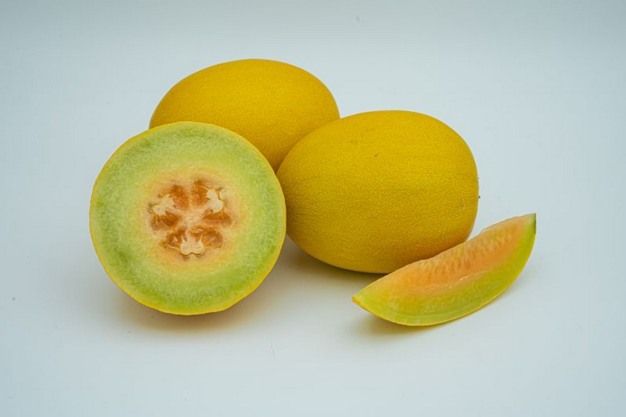The small melon seed breeding company Superfruiter is working on another exciting segment: a Superfruiter melon variety with an edible rind, sized between 150-300g, which can be eaten like an apple. "We call it the 'cherry melon' and we believe it could revolutionize the fruit industry, much like the cherry tomato did for tomatoes," states Yael Alter, CEO of Superfruiter.
This new development, already planted in Europe's melon growing capital of Spain, is part of the 'melon revolution' the company has brought about in recent years. This is in response to growing consumer demand for less bulky melons, which although much liked has often dampened demand due to the inconvenience. "We are currently working on two types: Piel de Sapo (PDS) and Yellow Canary (YC). We have two commercial varieties, one PDS and one YC. The PDS is sized between 700-1000g, very sweet, with a long shelf life of over 30 days, and a crunchy texture. The YC is sized between 800-1200g, has orange flesh, a crunchy texture, and a long shelf life as well. Next season, we will introduce five more types based on these two varieties. One of them will be a very small, sweet variety, around 200g in size, with tiny seeds. Another version of the PDS will have a yellow-green rind, be sweet, and sized between 700-900g," explains Alter.
Melon growing shifting from open field to protected environments
The changing weather patterns around the world has been harsher, from either drier and hotter, then suddenly changing to wetter weather. The major melon growing and exporting regions of South America and in Europe have been hit hard with damaged melon fields leading to reduced plantings. "We believe that the melon industry will follow the trend seen in tomatoes and peppers and shift from open-field cultivation to protected environments. Since Superfruiter melons are small, with multiple fruits per plant, of 3-4 fruit sets per plant, compared to regular melons, which have 1-4 fruits per plant, we expect the best way to grow them is in protected environments, vertically. This method would make harvesting easier, maximize fruit production, and maintain premium quality," states Alter.

While consumer trends are towards smaller watermelons, growers are adapting too says Alter. "Growers are interested in the added value of Superfruiter melons due to several factors: higher yield of 6 tons per 1,000 sqm vs. 4 tons per 1,000 sqm for similar varieties. Premium fruits that can be sold by unit rather than by weight. A long harvest period, leading to an extended marketing season and long shelf life."
Their new melon seeds are becoming widely planted in key growing countries around the world. "Our seeds are currently planted in Israel, Spain, Thailand, Brazil, and Italy. In general, Superfruiter melons can be grown anywhere that regular melons are planted," advises Alter.
Superfruiter is the brainchild of 15 years of relentless research at Israel's Volcani National
R&D Center. They rely on no genetic modification or gene editing, "just good old fashioned
traditional breeding". The company is raising funding to help them with their aims of reshaping the global melon market.
Visit Alter at the Superfruiter stand in the Innovation Hall at Fruit Attraction in Madrid, 1B01.
For more information:
Yael Alter
Superfruiter
Tel: 972-506464644
yael@SuperFruiter.com
www.superfruiter.com

